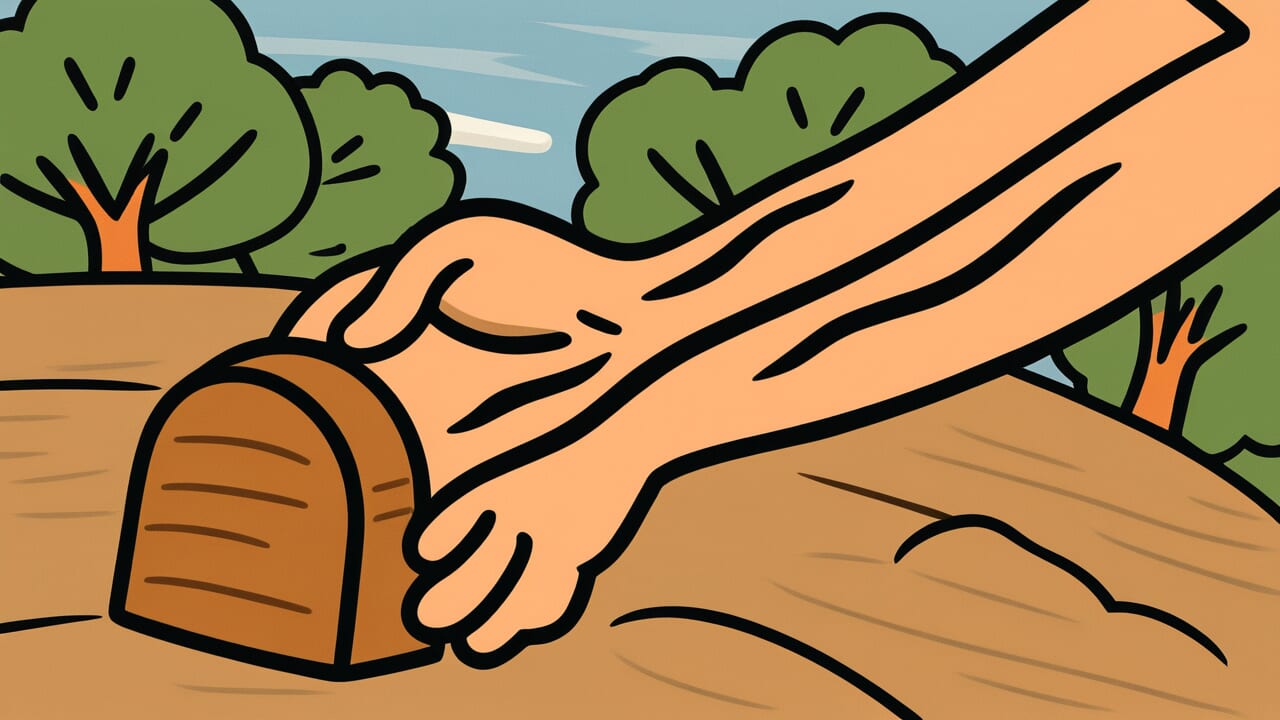How to Read “A hard tree breaks”
Katai ki wa oreru
Meaning of “A hard tree breaks”
This proverb means that people who lack flexibility easily fail when they face difficulties. Stubborn people who cling to their own ideas and methods may seem strong and admirable at first glance.
However, when they encounter unexpected challenges or changes, they cannot respond flexibly. As a result, their spirit breaks or they end up failing.
This proverb is used for stubborn people who won’t change their opinions or those who cannot adapt to situations. It often carries the advice: “Don’t be so rigid—think more flexibly.”
In modern society, change happens quickly and unpredictable events are common. This makes the proverb’s teaching increasingly important.
It conveys the importance of flexibility through an easy-to-understand metaphor: the nature of trees.
Origin and Etymology
The exact first appearance of this proverb in literature is unclear. However, its structure suggests it was born from the combination of Japanese nature observation and life wisdom.
Japanese people have deeply observed the properties of trees since ancient times. A tree that grows hard looks sturdy and strong at first glance.
But when strong winds like typhoons blow, it cannot bend and snaps easily. On the other hand, soft trees like willows bend greatly in the wind and remain standing after the storm passes.
The essence of this proverb lies in overlapping this natural principle with human character. The natural phenomenon of hard trees breaking easily is a universal fact anyone can witness.
From this, the lesson emerged: “A stubborn and inflexible attitude can actually lead to one’s downfall.”
Chinese Taoist philosophy has a similar concept: “Softness overcomes hardness.” However, this proverb has been passed down as wisdom that Japanese people learned independently from familiar nature.
It is a heartfelt expression born from Japanese culture’s deep connection with wood as a material.
Usage Examples
- He stuck too much to his own methods, and like “A hard tree breaks,” he was eventually removed from the project
- Being stubborn isn’t all bad, but “A hard tree breaks,” so sometimes compromise is necessary
Universal Wisdom
The proverb “A hard tree breaks” has been passed down because humans instinctively misunderstand what “strength” means. We tend to assume that hard and solid things are strong.
We believe that sticking to our beliefs and not bending our will is a virtue. We think this is proof of strength.
However, our ancestors discovered what true strength is through observing nature. What survives the storm is not the hard tree, but the flexible one. This insight remains true in human society as well.
Everyone wants to believe they are right. Changing our thoughts or methods feels like admitting defeat, and our pride won’t allow it.
But continuing to refuse change may actually be a sign of weakness. True strength lies in the flexibility to change yourself according to the situation.
This proverb is a crystallization of wisdom that humanity has learned over a long time about the relationship between strength and flexibility.
Stubbornness and strong conviction are separated by a thin line. The proverb teaches us that distinguishing between them is extremely important for surviving life.
When AI Hears This
Materials engineering has a basic law: “Strength and toughness are inversely proportional.” In other words, the harder and stronger a material is, the more easily it breaks when it receives impact.
For example, diamond has a hardness of 10, but if you hit it with a hammer, it shatters into pieces. Meanwhile, rubber has a hardness of only about 1, but no matter how many times you hit it, it won’t break. This can be explained by the internal structure of materials.
In hard materials, atoms are tightly bonded together, so when they receive external force, they cannot change their structure. There’s no place for energy to escape, so the moment a certain limit is exceeded, they break all at once.
Conversely, soft materials have loose atomic bonds. When they receive external force, the structure itself deforms and absorbs the energy. In other words, they have an “escape route,” so they don’t break easily.
This law applies directly to human organizations. Organizations bound by strict rules operate efficiently in normal times, but when unexpected problems arise, they cannot respond and collapse.
On the other hand, organizations with some flexibility may seem inefficient but overcome crises. What’s interesting is that “combining hardness and toughness” is the biggest research theme in materials science.
The latest composite materials achieve both by combining hard layers and soft layers. In human society too, the key is probably how to combine principles with flexibility.
Lessons for Today
What this proverb teaches you today is that having your own thoughts and clinging to them are completely different things. Having convictions is important, but when situations change or new information comes in, the flexibility to accept it honestly is equally important.
Modern society is a continuous series of changes. What was right yesterday may not work today. In such an era, we need the humility to think “I might be wrong” and the courage to think “Let’s try a different way.”
This proverb teaches us that this is not weakness, but rather strength.
When you get stuck on something, remember this proverb. Perhaps you’ve become too rigid. Just relax a little and look at things from a different angle. That alone can sometimes open new paths.
Like a willow, be flexible. Don’t fight the wind, but never fall down. Why not aim for that kind of life?



Comments